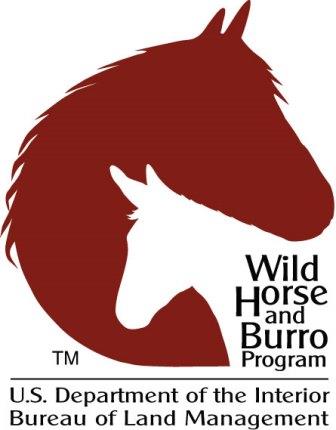2017 Bible Springs Complex Wild Horse Gather
Begins Tuesday, August 15, 2017
Ends Saturday, August 19, 2017
Purpose of Gather: 
Rangeland resources and wild horse health have been and are currently stressed within the Bible Springs Complex. Drought conditions and overpopulation of wild horses during recent years have reduced forage production in some of the key wild horse habitat areas. Although livestock numbers have been continuously reduced and/or completely removed during drought conditions, excess wild horses overgraze many areas within the HMAs during critical growth periods. This, along with the reduced vigor of the plants because of the drought, causes mortality of key forage species throughout the HMAs.
There are numerous water developments throughout the four HMAs. These developments range from springs dug out with a pick and shovel to pipelines with troughs. Developed springs normally have pipelines that run to one or more troughs. Most of the developments have been completed for livestock grazing, with additional benefits for wildlife and wild horses. These developments require maintenance annually from the livestock permittee before livestock are allowed on an allotment. When permittees do not turn any livestock out on an allotment or area due to drought or other reasons, these developments are not maintained and fall into disrepair. This has resulted in reduced water sources for all animals when water is most needed. The BLM has hauled water onto the HMAs for wild horses several times during the past ten years, but this is not sustainable for long periods of time.
Wild horses have dug out holes where there is a seep of water, allowing them to get a drink. However, over time this will compact the soil and can seal off the seep. Horses by nature will paw at a water source, causing damage to some water troughs. Wild horses have also been known to dig up and break pipelines near air vents, because they can smell the water at that location, adding to the maintenance cost of a pipeline and troughs.
Details of Gather:
The current wild horse population estimate in the Bible Springs Complex is approximately 619 animals and the BLM plans to gather and remove 100 wild horses from State, private and BLM-managed lands. The Complex's appropriate management level (AML) is 80-170 horses.
The primary gather method used will be the helicopter drive method with some limited helicopter assisted roping (from horseback) if needed to restrain individual horses.
A veterinarian will be on-site throughout the capture process. Gathered horses will be loaded into trailers and taken directly to a preparation facility. No horses will be held overnight in a temporary holding facility.
Public Observation:
The public is welcome to observe daily operations through BLM escorted tours – provided the safety of the animals, staff and observers are not jeopardized – and operations are not disrupted:
- Observers must provide their own transportation, water and food.
- No public restrooms will be available.
- The BLM recommends weather appropriate footwear and neutral-colored clothing.
- Binoculars and four-wheel drive, high clearance vehicles are also strongly recommended.
- Low flying helicopters will be used as part of the operation.
- Flying Unmanned Aerial Vehicles (drones) near the Wah Wah and Indian Peak Mountain ranges will be prohibited during the gather.
- Brief road closures may also be needed to allow movement of horses during gather operations.
Those interested in participating should meet at the Maverik Adventure’s First Stop, 220 North Airport Rd in Cedar City, Utah, where tours will depart at 5 a.m. MST.
**Details will be announced daily on the BLM gather hotline, (801) 539-4050.
Adoption Information:
Animals removed from the range will be made available for adoption through the BLM Wild Horse and Burro Adoption Program. Those that are not adopted will be cared for on off-range pastures, where they retain their protection under the 1971 Wild Free-Roaming Horses and Burros Act.
Background:
The Bible Springs Complex is comprised of four herd management areas (HMA), Bible Spring, Blawn Wash, Four Mile and Tilly Creek. The four HMAs that make up the Bible Springs Complex are located in southwest Utah approximately 30 miles west of Minersville, Utah, in the Wah Wah and Indian Peak Mountain Ranges. The Bible Spring Complex is approximately 223,000 acres.
Only three HMAs will be included in this capture and removal (Bible Spring, Four Mile and Tilly Creek). The wild horses primarily use the lower benches in the winter and the higher elevations in the summer.
Gather Reports
Tuesday, August 15
Summary: Twenty members of the public watched as 62 horses were gathered via drive-trap. One five-year old bay stud was euthanized due to a preexisting injury to the fetlock area of the left rear leg which caused a severe lameness and a hopeless prognosis for recovery. The remaining horses had body conditions of 4's and 5's. A total of 61 horses were transported to Axtell Off-Range Corrals.
Axtell received 62 horses at 4:30 p.m. from the Bible Springs Gather. All horses arrived in good condition and are doing well. Horses have been sorted into pens and were given grass, hay, and water.
Animals gathered: 62
Animals shipped: 61
Total deaths today: 1
Acute: 0
Chronic/Pre-existing: 1
Wednesday, August 16
Summary: Twelve members of the public watched as 63 horses were gathered without incident. All horses had body conditions of 4's and 5's. A total of 63 horses were transported to Axtell Off-Range Corrals.
Axtell received 63 horses at 4:10 p.m. from the Bible Springs Gather. All horses arrived in good condition and are doing well. This brings Axtell's total to 124 horses received at the facility. Horses have been sorted into pens and were given grass, hay, and water.
The gather has completed.
Animals gathered: 63
Animals shipped: 63
Total deaths today: 0
Acute: 0
Chronic/Pre-existing: 0
